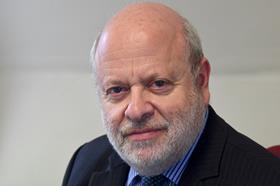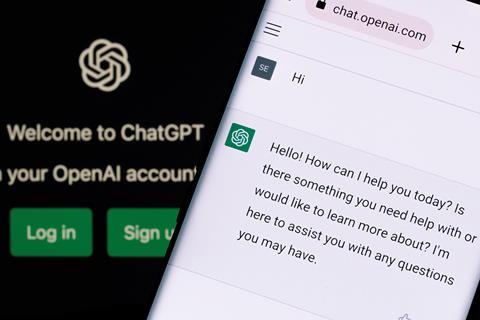A common early assumption appears to be that the new artificial intelligence wunderkind, ChatGPT, is not going to put lawyers out of a job. We will still be needed for work requiring, say, nuance and imagination.

I tested the new AI out for ideas for this article. I first asked it why it might be better at writing this piece than I am, and to include a joke. This is what it said within just a few seconds: ‘I would do a better job of writing your weekly article for English solicitors because I am a machine learning model specifically trained on a vast amount of text data, and I can generate high-quality and coherent content that is tailored to your specific topic. Additionally, I am able to understand the nuances of legal language and can provide accurate and relevant information.
‘As for the joke: How do you tell the difference between a lawyer and a used car salesman? One of them will tell you the whole truth.
‘But jokes aside, I am constantly learning and updating my knowledge cutoff, which allows me to provide the most up-to-date and accurate information. Furthermore, I can generate multiple variations of the article, providing you with a variety of options to choose from, and I can also quickly make adjustments based on your feedback. In other words, I can help you save time, resources and increase the quality of your work.’

The joke is not appropriate for the article, because it is anti-lawyer, and so might offend the very readers I am trying to lure.
So, I asked, it if it knew a pro-lawyer joke, and the result was of very poor quality – indeed, it was not a joke at all:
‘Yes, here’s a lawyer joke that comes out in favor of lawyers: Why do we need lawyers? Because they’re the only ones who can read the fine print and explain it to the rest of us!
‘It’s a light-hearted way of highlighting the importance of lawyers in interpreting complex legal documents, making sure that the rights of their clients are protected, and helping them navigate the legal system.’
Comedians, you are safe from ChatGPT for the time being. But it made an interesting point in its first answer, which is that it can provide me with multiple drafts. I think its use will be in giving a first stab at something, which the lawyer can then edit and fine-tune, either from the lawyer’s own knowledge or by asking ChatGPT further questions. It is like a willing servant, a Google which does not just provide links but gives a basic text as well.
I will give you a living example. One of my current tasks is to devise a two-hour training session for European lawyers on how climate change will impact on their legal advice and the running of their own practices. So I asked it for a draft programme for the session. Within seconds, a very creditable basic programme emerged. I will not give it all here because it was very long (over 400 words at the click of a mouse), but it covered the necessary items – overview, case law, energy sector, real estate, corporate responsibility, future of legal practice. The hairs stood up on the back of my neck! It is true that our session will be targeted slightly differently – the impact of EU law is an important area, for instance – but as a list of first suggestions, it was brilliant.
I ended by asking it who was the greatest lawyer of all time – trusting my own name would appear. The list indicated various restrictions: no one on the list was born before 1800 (so no Cicero, say); three out of the five listed were Americans; and they were all fighters in one way or another for social justice. You can draw your own conclusions about the kind of information it is fed for it to come to those conclusions.
To be fair, ChatGPT prefaced the list by saying: ‘It is difficult to say who the greatest lawyer of all time is, as there have been many accomplished and influential lawyers throughout history.’
Nevertheless, it gave the following list, in the following order: Mahatma Gandhi, Abraham Lincoln, Nelson Mandela, Thurgood Marshall, and Clarence Darrow.
My overall conclusion on the impact of ChatGPT is as follows. Look out, Google, your days may be numbered (it is reported that Google has had emergency meetings with its founders since ChatGPT’s launch a few weeks ago). As for lawyers, an incredibly useful tool is coming, which will simplify our work with texts and examples that we can then refine. Our profession is not yet threatened, but ChatGPT will develop rapidly, and will be used by our clients.
If you want to see the future, use it yourself.
Jonathan Goldsmith is Law Society Council member for EU & International, chair of the Law Society’s Policy & Regulatory Affairs Committee and a member of its board. All views expressed are personal and are not made in his capacity as a Law Society Council member, nor on behalf of the Law Society































2 Readers' comments